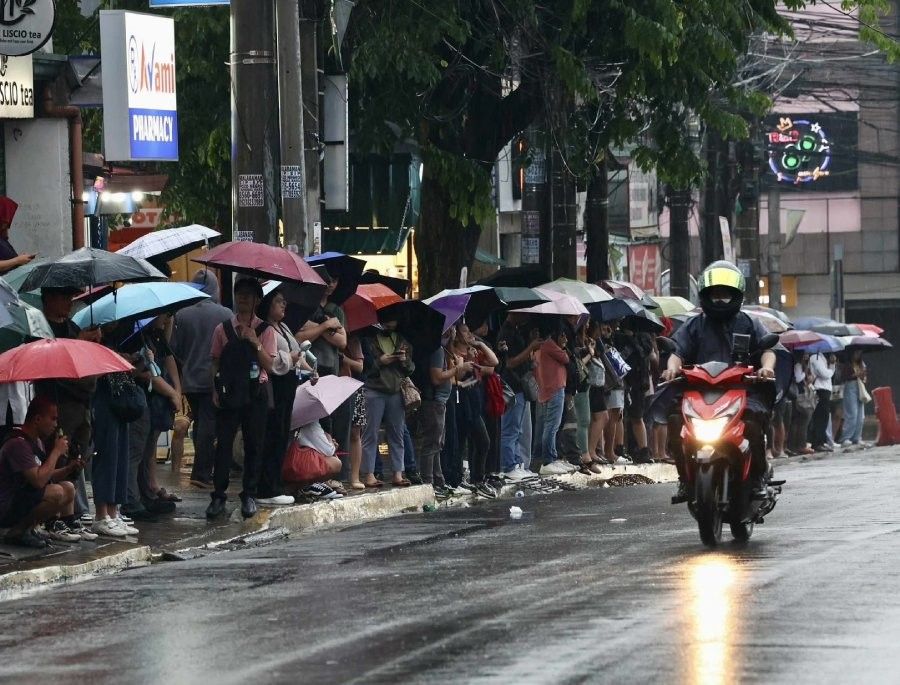
Upgrade to High-Speed Internet for only ₱1499/month!
Enjoy up to 100 Mbps fiber broadband, perfect for browsing, streaming, and gaming.
Visit Suniway.ph to learn
Graphic content: A woman dries her baby suffering from a severe form of mpox at the Kavumu hospital, 30 km north of Bukavu in eastern Democratic Republic of Congo, August 24, 2024.
AFP / Glody Murhabazi
MANILA, Philippines — The Department of Health (DOH) warned the public against circulating fake Facebook posts claiming a nationwide lockdown will be imposed due to the monkeypox (Mpox) virus.
In an advisory, the DOH said it has not proposed a lockdown, saying that such action is unnecessary since Mpox is not airborne disease.
"Walang pangangailangang magkaroon ng lockdown dahil sa mpox dahil hindi ito airborne (There is no need for a lockdown. Mpox is not airborne),” the health agency said.
According to the World Health Organization, Mpox is a viral infection that can spread between people, mainly through close contact, and occasionally from the environment to people through things and surfaces that have been touched by a person with Mpox.
The health department also clarified that the recent spike in Mpox-related headlines was due to active announcements from local government units (LGUs), not because of a major outbreak.
"Mas marami pang Mpox nung 2024. Mas marami ring naitala nung Abril kaysa ngayong Mayo 2025. Nagkataon lamang na nagheheadline dahil aktibo at nag-aanunsyo na ngayon ang mga LGU," the DOH said.
(There were more Mpox cases in 2024. Even this April had more than this May 2025. The issue is only trending now because LGUs have become more active in their advisories.)
The agency said only Clade II of the Mpox virus has been detected in the country so far.
Clade II has a significantly lower fatality rate, about one in every 10 cases, compared to Clade I-b, which has a fatality rate of four to five in every 10.
The DOH urged the public not to believe misleading Facebook posts and warned against falling for fake health statements, fraudulent endorsements from supposed experts, or posts with deceptive marketing tactics.
The agency urged the public to follow its official Facebook page for accurate health updates.
It also said that it had referred the matter to the Department of Information and Communications Technology for action against the source of the misinformation.

 3 weeks ago
41
3 weeks ago
41



